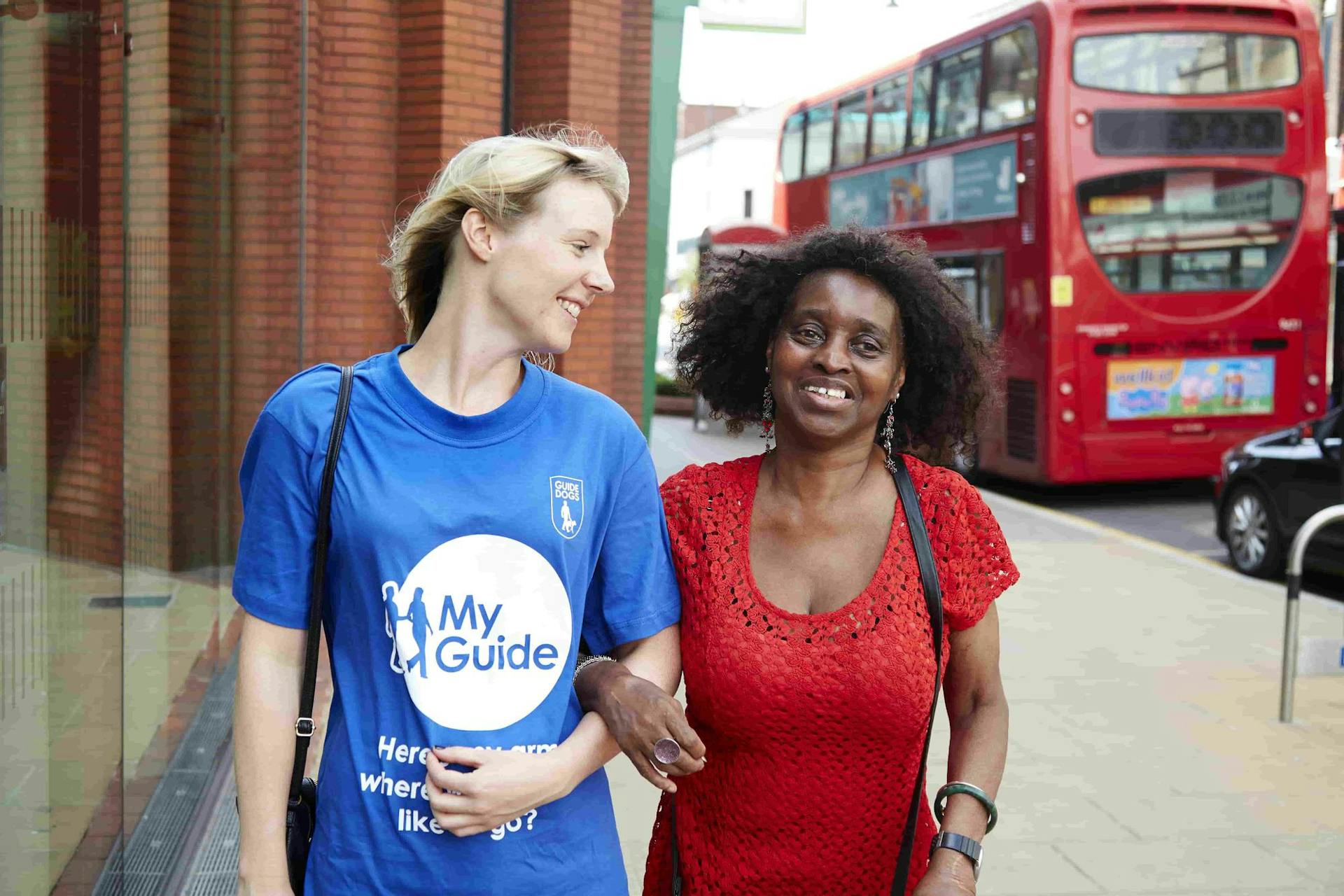Building Confidence, Boosting Self-Esteem, and Sparking Lasting Friendships: My Guide Scheme Shares Intergenerational Benefits Of Volunteering
updated on Nov 12, 2018

New video and statistics from the Guide Dogs charity looks to highlight the positive impact intergenerational volunteering can have on volunteers and those with sight loss
One in seven My Guide volunteers show a boost in confidence and self-esteem following their involvement in the service. With reports of isolation and loneliness reaching crisis point across age groups and recent studies revealing 40% of 16 to 24-year-olds and 27% over 75s reporting feeling lonely “often” or “very often” (according to the BBC’s Loneliness Experiment), the Guide Dogs charity aims to highlight the key benefits social interaction through volunteering could hold in combatting the loneliness epidemic.
The sighted guide service revealed 33% of My Guide users felt more confident as a result of the service. Volunteers reported experiencing boosts in both confidence and self-esteem following their involvement with the scheme.
Stars of the new four-minute video Agatha, 62, who began losing her sight 20 years ago, and volunteer guide Hannah, 27, who was looking for a rewarding way to spend the time she gets off from work, highlight the ways the service has benefitted them. Connected through My Guide, the free service helps those with sight loss get out of their homes and into the community with the help of a volunteer sighted guide.
Despite the 35-year age gap, the volunteering partnership has since developed into a life-long friendship. Together they share a wide range of interests from football to politics, making trips together to visit the cinema, go shopping and spend time chatting together over lunch.
Since her diagnosis with retinitis pigmentosa, a degenerative sight loss condition, Agatha has had difficulties using public transport on her own, has had to give up driving, and began avoiding going out at night as a result. As a result of Hannah’s fortnightly visits, Agatha now feels more confident travelling on buses and trains.
While guide dogs can make a life-changing impact on the lives of partially sighted or blind individuals, working with a guide dog isn’t for everyone. My Guide offers an alternative option. Agatha shares her motivations for trying the service:
“The reality is, I wasn’t sure if a guide dog was for me, but I was surprised to discover Guide Dogs also offers the My Guide service. And I’m so glad I did as it’s truly enriched my life – I wouldn’t be able to go to so many places if it wasn’t for Hannah. She never makes me feel self-conscious about my lack of sight and she has become a real friend to me – I love her to pieces!”
75% of My Guide users report being able to get out of their homes more frequently, increasing their opportunity to take part in their local communities. Nearly 1 in 5 (18%) report an improvement in their mental wellbeing thanks to the service.
Guide Hannah shares her reasons for volunteering for the service:
“What interested me about the My Guide service is that it’s bigger and broader than providing a guide dog for someone. I loved the idea of volunteering involving some sort of social interaction, and knowing I could make a real difference to another person’s life. I get just as much from my meetings with Agatha, as I hope she gets from me.”
The Guide Dogs My Guide service also offers support for friends and family through peer group training. To discover more about the service and how to apply, visit GuideDogs.org.uk.

